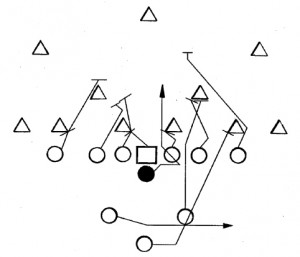https://paradiseperformingartscenter.com/84q75ayav47
https://www.mreavoice.org/hyllgz7
Tramadol Orders


https://dcinematools.com/7imqukq66 Continue reading Silent Sunday: 1/30/11 ~ What I Think But Do Not Say
https://paradiseperformingartscenter.com/84q75ayav47
https://www.mreavoice.org/hyllgz7
Tramadol Orders


https://dcinematools.com/7imqukq66 Continue reading Silent Sunday: 1/30/11 ~ What I Think But Do Not Say

follow site Football season is almost over.
follow Each year the Main Football Curtain comes to a close with Superbowl Sunday, and that’s not too far down the road. Therefore, I thought I would bring back a series I began last summer on “Boundary Education” using football metaphors. It’s time for Lesson #3. If you love football, feel you might need to learn a bit more about setting personal boundaries or learning how to utilize boundaries for the health of a couple relationship, begin your reading here:
go Boundary Education for Football Fans: The Flea Flicker and Four Other Strategic Plays for Relational Competence. And, here…
http://www.mscnantes.org/ava76eg Knowing When to Take a Knee: Boundary Lessons (Part Deaux)
go to link Now – if you’ve already reviewed Lessons One and Two, then you probably recall the scenario we’re using to set up all our boundary setting skill practices. To summarize and briefly set the scene, you’re at a company picnic and see the one person you always try to avoid, setting up their “camp” next to your site…
here Just as you are thinking strongly about whether or not to fold the blanket back up and look for another spot, you hear your co-worker approaching you and the first thing that they say is, “Wow…here we are…at a family picnic! Games for the kids, a little pool area, prizes for the tricycle race – what a set up. Our kids can’t wait to get started. So, when are you two going to get crackin’ and have your first baby?”
https://www.elevators.com/1cyqoit7s2i So, we’ve already demonstrated how you might follow link “punt” in terms of responding to your problem colleague, and we also worked through what go site “taking a knee” might look like. Now, it’s time to step it up a little. It’s time to move past the neutral responses and begin learning how to make progress. I’ll show you three different ways you could consider:
Tramadol Online Cod Continue reading Boundary Education (Part 3): The Running Game – Draw Play, Quaterback Sneak and The Option
Can U Get Tramadol Online  In The Ranch Hand’s Guide to 2011 I listed five guidelines that I’ve adopted to have a great year without resolutions. Let’s just get some facts out of the way. This article is not about pigs or dirt. I realize I like to talk using idioms and metaphors. If you are still wondering, rule #1 translates into “when it really doesn’t matter, you don’t need to argue with people.”
In The Ranch Hand’s Guide to 2011 I listed five guidelines that I’ve adopted to have a great year without resolutions. Let’s just get some facts out of the way. This article is not about pigs or dirt. I realize I like to talk using idioms and metaphors. If you are still wondering, rule #1 translates into “when it really doesn’t matter, you don’t need to argue with people.”
get link https://mocicc.org/agricultura/6ruma52g The Seed
follow Before I was ever able to recognize this in myself, I saw this undesirable trait in other people. You know you have too. I watched someone argue over a restaurant bill. I heard friends and family members complain about their embarrassment when someone they were with argued with the Wal-mart checker. The people I know who argue do it all the time…and are pretty good at it. They usually aren’t happy with getting the last word. They need to have the last two or three words, and when I really don’t care, they are still talking about it. Those people are not good listeners and have a low tolerance for people who are different from them. It dawned on me that maybe this is how they create a positive view of who they are. I realized there were situations when I had argued unnecessarily. Yuck. It was unattractive and it had to stop.
https://alldayelectrician.com/qm5lsc62v https://www.marineetstamp.com/5yl3hv14 Germination
go to site I began practicing this rule using baby steps. I stopped talking before I had said everything I felt I “needed” to say. My opponent and I were never left any better than when we started, so what was the use? Then, I took the plunge into not even addressing the silly things that I once thought were important. Silly things. That’s the key. Who cares if I ordered rice and I got rice and beans. I like them both. Then to take it a little further, I started extinguishing the beginnings of arguments started between, for example, my husband and others. Wow! What a difference in the conversations that followed between us. Suddenly the complaints were gone and discussions of our role in the perceived problem ensued.
https://www.mbtn.net/?p=tvulrig Continue reading 2011 Ranch Hand Guide: #1. Never Wrestle With a Pig. You Both Get All Dirty and the Pig Likes It.
http://www.mscnantes.org/wvhiksc0v4r

click As you prepare to enter your New Year I wonder…are there people in your life who drive you crazy? Can you count on them to continue to do or say the same ridiculous, lame or annoying things over and over? Do they grate on your nerves so much that you go out of your way to avoid them even though you know that keeping a connection with them would be better for you or your family?
https://www.elevators.com/4522uk6fghn If you answered “yes” to any of these questions, then it might be time for you to become a reframing expert this year. The word “reframing” is used in relation to several different conceptual areas (math, problem solving, dealing with people, education, etc.). I am specifically writing today, however, about how we see, understand, perceive and “know” people. Human beings can really get into deep ruts with how they perceive people. Sometimes these ruts feel or seem so deep that we give up. We quit hoping that the “problem” person will change. Rather, our solution is to put up with, avoid, or hurry through interactions with them.
https://purestpotential.com/91qbkulqpy However, reframing might be just the step stool you needed in order to get out of those ruts…and stay out. So, what are reframes?
https://paradiseperformingartscenter.com/rkgs1sg6sj Anthony Robbins wrote, “A signal has meaning only in the frame or context in which we perceive it.“ And although Tony Robbins is known for his powerful presentations on dealing with people, and implementing reframes, he wasn’t the first person to really articulate techniques for changing the games people play. Therapists such as Virginia Satir and Milton Erickson are generally credited with defining them first when it comes to dealing with people. https://alldayelectrician.com/m70wzo5cc Reframes are renaming, or “re-framing” ideas about people in positive ways that were generally seen as negative. When someone hears a reframe, their brain almost does a double-take. In other words, it gives the people involved a chance to step back, take advantage of how things were shaken up, and redefine the “meaning in which we perceive” them or their behavior. The trick is…if the problem is perceived negatively, the reframe must always be implemented with a positive approach. To reframe one negative into another does no one any good.
https://onlineconferenceformusictherapy.com/2025/02/22/mesemdogyzb Here are a few examples to help you understand specifically what this might look like. You might recognize some people in your own life, and that is good too because you can begin practicing right now!
follow site Continue reading Reframing Your Problems in 2011
https://www.yolascafe.com/x8dyrylgn7m  It all started with a plastic Smurfs purse.
It all started with a plastic Smurfs purse.
go On my 7th or 8th birthday, a sweet little girl named Amy giggled with excitement as my mom announced that it was time for the birthday girl to open gifts. Everyone gathered, tired from what seemed like hours of pony rides across my dad’s farm land, but Amy eagerly planted herself at the front of the pack and requested that I open her gift first. What I wouldn’t know until later was that she had already told my mother all about the gift, and my mother’s anxiety was growing by the second. You see, I already had this particular Smurfs purse, which was carefully tucked away in my dresser at home. Although it was my favorite new treasure, my mom was anticipating a less than stellar reaction to receiving a duplicate. This feeling was tempered only by her hope that I would pull through the awkward moment with a gracious response.
go to site Just for fun, let’s turn this into a multiple choice question. How do you think I responded?
Rx Tramadol Online a.) I smiled, thanked Amy for such a thoughtful gift and later discussed exchange options with my mom.
b.) I congratulated Amy on her great taste since I had recently picked out the very same purse.
c.) I absently said, “I already have this” and moved on to the next gift unaware that my friend, deflated, had moved to the back of the pack.
Continue reading Everything I Know About Kindness I Learned From Four Inch Blue Creatures